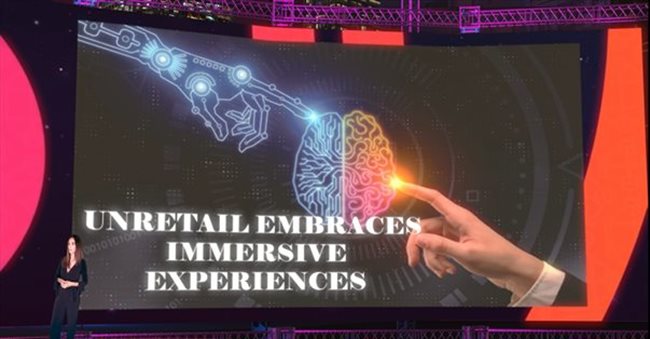
Top stories






More news

Marketing & Media
Warner Bros. was “nice to have” but not at any price, says Netflix

Logistics & Transport
Maersk reroutes sailings around Africa amid Red Sea constraints

















This is according to Kayleigh Fazan, founder and owner of the International Retail Academy, who presented a keynote during the online SingularityU South Africa Summit last week.
"Oxford Street department stores have closed. Global brands have vanished. Businesses are disappearing overnight. It's really shocking to see," Fazan said.
She said that we are seeing three key things in retail today: Firstly, the future of retail is "un-retail". Secondly, omnichannel is not enough. Thirdly, the store is a stage.
"When last did you shop at an experiential store? A truly immersive experiential store... Most people will have been to a few lately, but not many can say that they have been to a truly immersive digital experience store more than 10 times in the last few weeks," Fazan added.
She said that retail is existing, not thriving, and that the industry is on a knife’s edge. Consumers' expectations include sustainability, diversity, fair trade and more. This is characteristic of millennials who make up the largest consumer group on the planet right now on. Forward-thinking retailers need to start paying attention to what this generation has to say, Fazan said, because what matters to this generation will form the future of retail.

How can you move from retail to un-retail? Fazan used the example of Samsung 837, the Samsung concept store and repair service in New York City.
Nothing inside that space can be physically bought except the coffee. Imagine thousands of square feet with no sales budgets and no inventory. The space is filled purely with experiences. Every floor has something different to offer. Every space has a different energy, vibe and experience with different things happening all the time. This continuation of merging online and offline retail is happening with speed and velocity.
Another example of future retail Fazan mentioned is the demonstration store. Inside a demonstration store, again, nothing is actually sold. Instead, everything is shipped. Customers visit by appointment only and they are greeted by a team of highly energetic, creative people.
"The role of the sales advisor will change in five to ten years from now. They will turn into personal stylists, or, creative directors for instance," Fazan pointed out.
These staff will need to have high levels of communication skills, emotional intelligence and compassion as well as an energy mindset. These experts will need to make people feel good. Furthermore, they will not be minimum wage sales associates. They will be highly desired, highly skilled and talented people who will convert your customers effectively.
The future of retail requires it to change. Omnichannel is news of yesterday. It is no longer enough to simply have an omnichannel strategy. Global consumers now demand a unified experience, allowing them to move freely and smoothly across channels with live visibility of inventory and pricing, Fazan said.
Of course, operating a business whilst implementing significant change is difficult. We can expect to see people with greater emotional intelligence being favoured as retail employees, bringing the omni-experience to life. Leaders with emotional intelligence will give teams a reason to grow and a reason to stay. These retail leaders will be kind, caring and compassionate. They will want their teams to feel appreciated because when you feel appreciated, you tend to do a better job. This way, people are more likely to grow and more likely to stay.
In turn, that team of highly engaged, emotionally intelligent human beings will become your greatest commodity, your greatest asset and hold the ultimate influence over your consumer inside of the store. At that time, the person closest to the customer will win. That team will give customers a reason to come back.
"The change will come when we decide how we hire these omni-experience teams, the future retail leaders, with less operational excellence and more people excellence. They will use their experience to blend everything exceptional into your brand so that your customers feels valued, appreciated, and really excited about visiting your physical space," Fazan said.
Start to consider the store as a stage. What is coming next in this retail revolution?
If you’ve heard of retail theatre, you’ll know that stores get set up for success during activation days, seasonal offers, promotions or campaign launches, but these don't last. They are moments in time. The stage goes back to normal and consumers become dialled out, Fazan said.
Millennials scroll through an estimated mile of content every day. They spend a staggering amount of time on their phones, scrolling through content, dialled out of retail's non-existent experience. This suggests that the mobile phone offers things that the store environment is currently lacking and consumer expectations are changing rapidly.
"The more data you have, the more power you have, therefore your stage may no longer serve you. Your brand must serve your audience, exciting and delighting them in new ways. Retailers need to build a star cast of employees, consider your products as the props on the stage, while your customers are your audience," she said.
Fazan asked pertinent questions. When you look at your retail store, will your audience enjoy the production and the performance? Is it enough to make them come back consistently? Or could they be lured away by digital experiences?
"The future of retail will bring the omni-experience to your stage, your store. The opportunity is massive and the upside will be huge for those that get it right," she concluded.